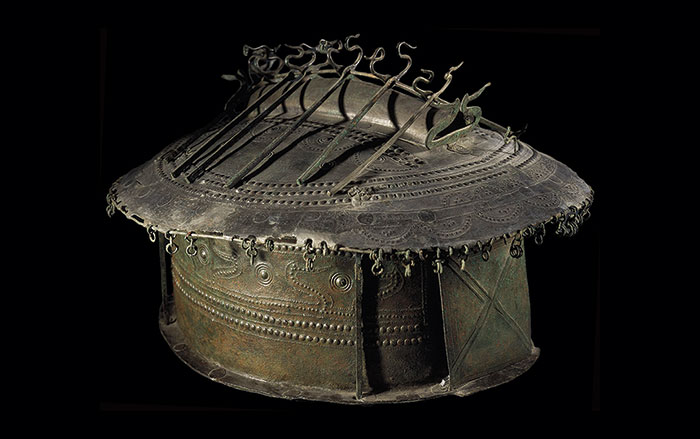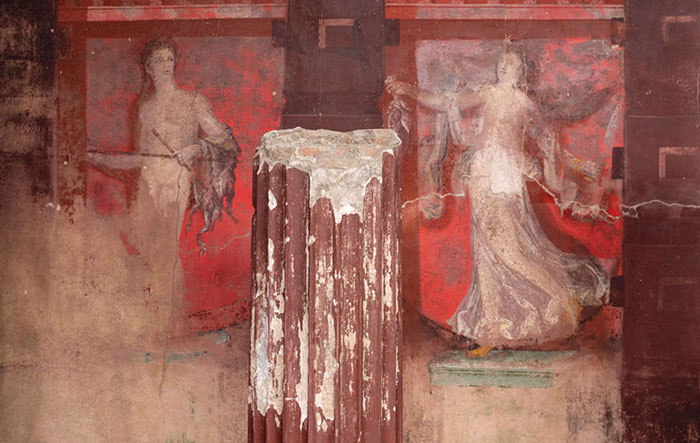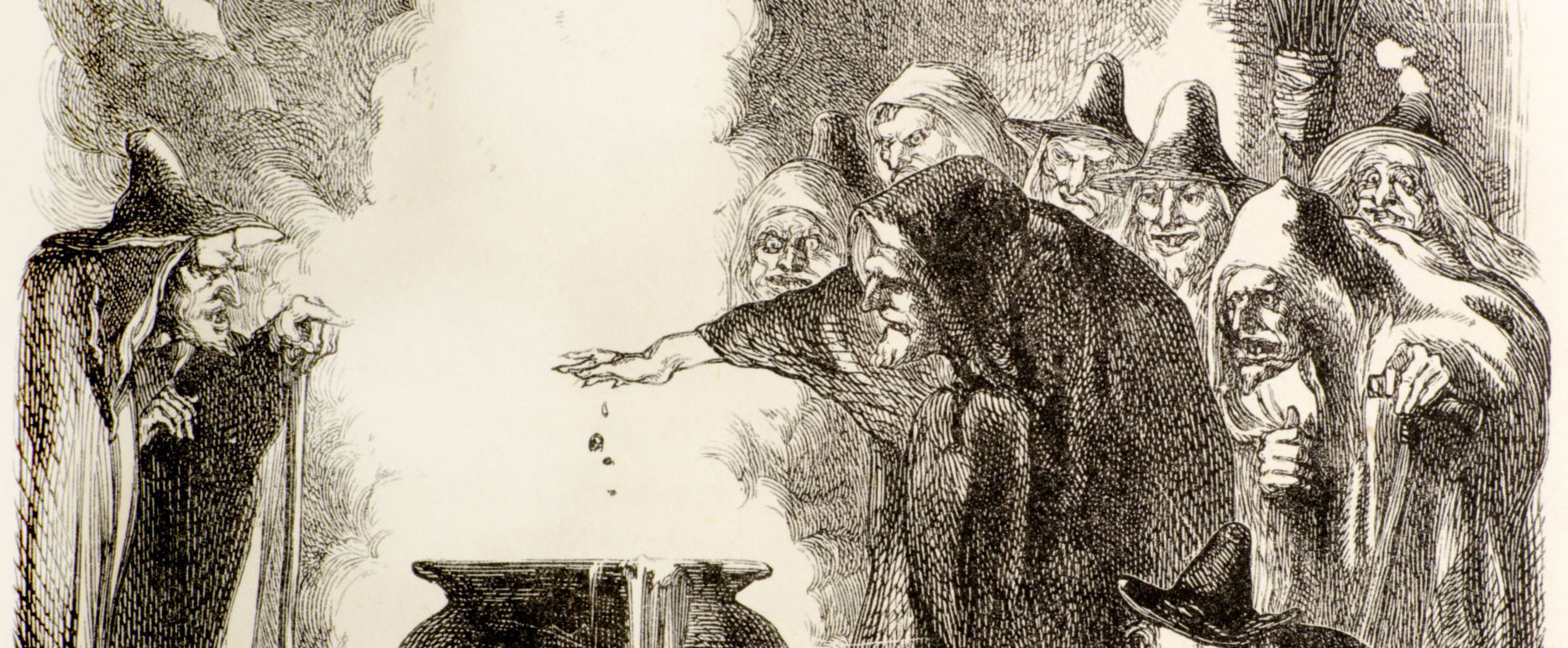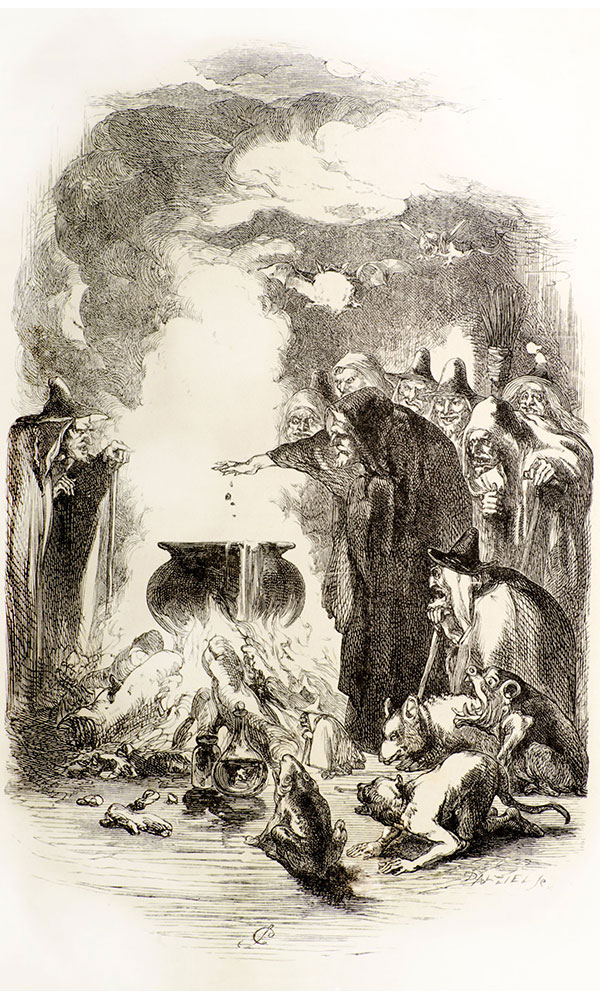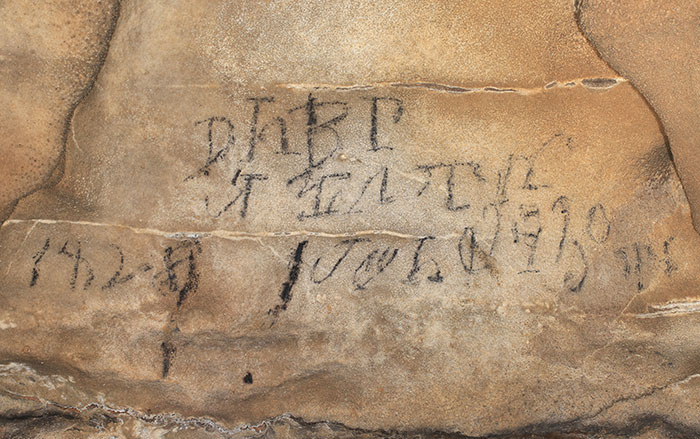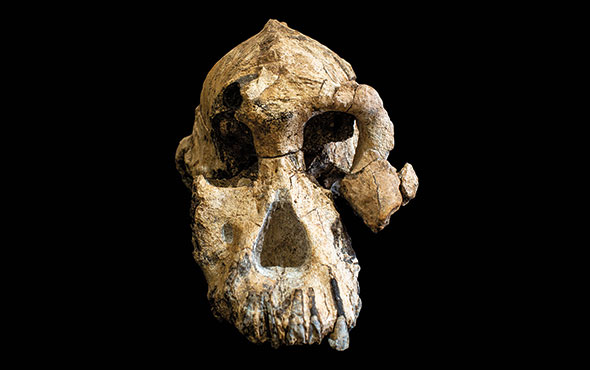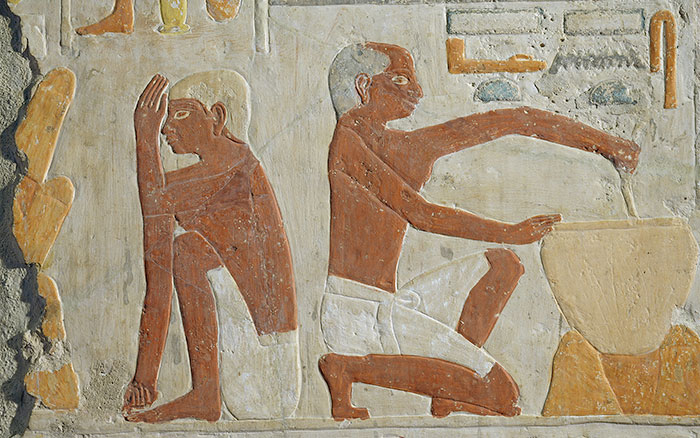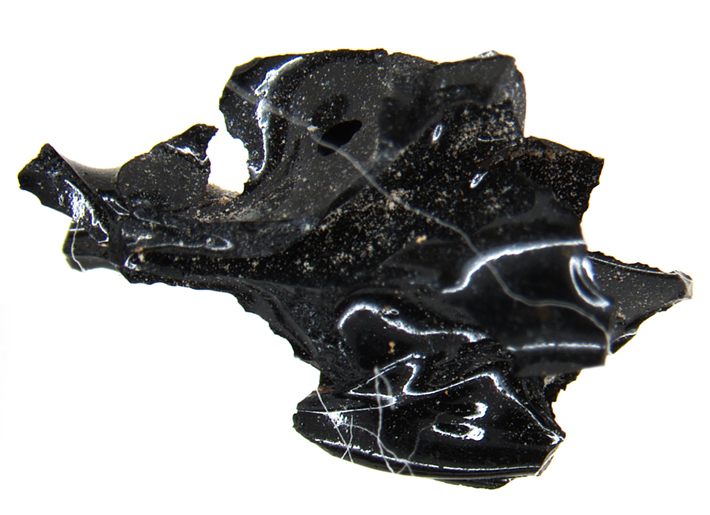
NAPLES, ITALY—According to a report in The Guardian, a team of researchers including forensic anthropologist Pier Paolo Petrone of the University of Naples Federico II found unique material inside the skull of a 25-year-old man whose charred, exploded bones were recovered in the 1960s from Herculaneum, an ancient city in southern Italy destroyed by pyroclastic flows during the eruption of Mount Vesuvius in A.D. 79. The young man’s remains were found under a pile of volcanic ash, lying facedown on a wooden bed in a small room in the Collegium Augustalium, where an imperial cult worshiped the emperor Augustus. The man is thought to have been the caretaker of the building, and asleep at the time of the disaster. Petrone said analysis of the glassy black material, which was found only in the man’s skull, revealed proteins typically found in brain tissue, and fatty acids found in human hair, while analysis of charred wood at the site indicates the temperature had reached 968 degrees Fahrenheit. Petrone and his colleagues suggest the glassy material could be human brain tissue transformed by the heat of the eruption into glass. To read about an innovative method for examining Herculaneum's wall paintings, go to "Putting on a New Face."


